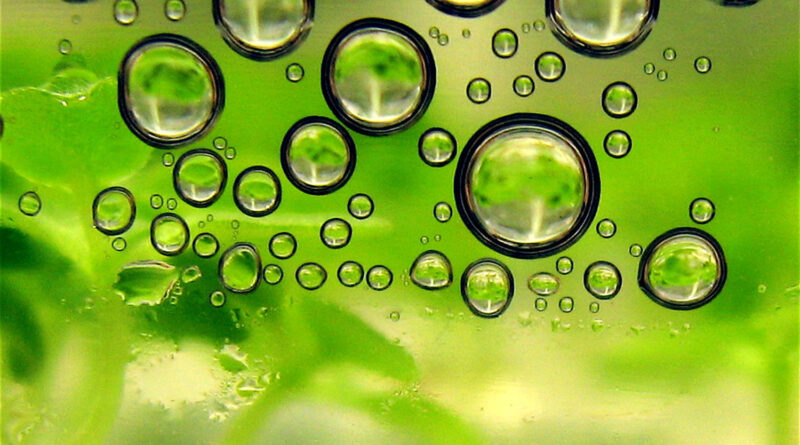Biofuels: Hope Or Hype?
Support CleanTechnica's work through a Substack subscription or on Stripe.
Or support our Kickstarter campaign!

One of the topics discussed at COP30 in Brazil last week was biofuels — substances made from plants that can substitute for gasoline and diesel. People in the US have been using biofuels for decades, although many drivers may not be aware of it. Beginning in 2005, the federal Energy Policy Act required that ethanol, made primarily from corn, be blended with the gasoline Americans purchased at the pump. The justification for the mandate was officially to lower exhaust emissions, but many at the time viewed it as a government handout to American farmers, and that perception persists to this day.
According to Grist, Brazil, Italy, Japan, and India are the primary sponsors of a call for the rapid global expansion of biofuels as a way to decarbonizing transportation energy. The goal is to quadruple the use of sustainable fuels over the next 10 years so they can account for 10% of all road transportation needs, 15% of aviation demand, and 35% of shipping fuel demand. By the last day of this year’s climate conference, 23 countries had joined the pledge.
“Latin America, South East Asia, Africa — they need to improve their efficiency, their energy, and Brazil has a model for this [in its rollout of biofuels],” Roberto Rodrigues, Brazil’s special envoy for agriculture at the summit, said on a COP panel last weekend. Brazil’s transportation sector has relied on ethanol for decades.
Biofuels Have Significant Drawbacks
The problem is that the production of biofuels uses up valuable cropland, which leads to farmers cutting down more forests and plowing under more grasslands to create new fields. That, in turn, leads to more carbon dioxide, not less.
As large scale production of biofuels continues to expand, there may be insufficient land, water, and energy available for its production. That’s why many researchers and climate activists question whether countries should be aiming to scale up biofuel production at all.
On October 9, 2025, Transport and Environment released a study that shows biofuels produce 16% more carbon dioxide pollution in their making and use than the fossil fuels they replace. The land devoted to biofuel production would grow enough food to feed 1.2 billion people and solar farms covering just 3% of that land would provide the same amount of energy as the biofuels do. If that is so, why on Earth would anyone bang the drum for biofuels? That’s a question that deserves further inquiry.
“Today, growing crops to be burned as fuel uses up 32 million hectares of land — roughly the size of Italy — to meet just 4 percent of global transport energy demand. By 2030, this is set to grow by 60 percent to 52 million hectares — the size of France,” T&E said. “By 2030, biofuels are projected to emit 70 million tons of CO₂ equivalent more than the fossil fuels they replace, equivalent to the annual emissions of almost 30 million diesel cars.” Whoa, whose bright idea is this? CleanTechnica readers, being well above average, can probably guess.
A Terrible Climate Solution
According to Cian Delaney, who leads biofuels research at T&E said, “Biofuels are a terrible climate solution and a staggering waste of land, food and millions in subsidies. Ensuring a sustainable balance between agriculture and nature is essential to tackling the climate crisis, and burning crops for fuel only pushes us further in the wrong direction. Using just 3 percent of the land we currently use for biofuels for solar panels would produce the same amount of energy. That would leave a lot more land for food and nature restoration. Governments around the world must prioritize renewables over crop biofuels.”
T&E added that its analysis shows that “biofuel crops require significant amounts of freshwater. Driving a car 100 km on first generation biofuels would require, on average, close to 3,000 liters of water, while only twenty liters would be needed to run an electric car on solar electricity. As climate change puts increasing pressure on water supplies, this could be a disaster.”
“While countries are right to transition away from fossil fuels, they also need to ensure their plans don’t trigger unintended consequences, such as more deforestation either at home or abroad,” said Janet Ranganathan of the World Resources Institute in a statement regarding the biofuel initiative at COP30. Rapidly expanding global biofuel production would have “significant implications for the world’s land, especially without guardrails to prevent large scale expansion of land dedicated to biofuels, which drives ecosystem loss.”
Environmental Issues & Biofuels
Other environmental issues associated with converting food crops into biofuels include water pollution from fertilizers and pesticides, air pollution, and soil erosion. One study, conducted a decade ago, showed that, when accounting for all the inputs needed to produce different varieties of ethanol or biodiesel — machinery, seeds, water, electricity, fertilizers, transportation, and more — producing fuel-grade ethanol or biodiesel requires significantly more energy input than it creates. So once again, why are we doing this?
At issue is how emissions from biofuel production are measured. Scientists argue that tracking greenhouse gas emissions linked to ethanol fuel should account for emissions at every stage — production, processing, distribution, and vehicle use. Yet that rarely happens, largely because doing so would expose the truth about biofuels and then what would all those farmers and fertilizer companies do?
Excluding such comprehensive analysis is evidence of a larger trend, according to University of Minnesota environmental scientist Jason Hill, who told Grist, “Overall, either those studies have not included [direct and indirect emissions], or they found ways to spread those impacts over anticipated production, decades, centuries, or so forth, that tend to dilute those effects. So the accounting methods aren’t really consistent with what the best science shows.”
Grist claims that more biofuel production means either more intensive agriculture on a smaller share of available cropland — which has its own detrimental environmental effects — or expansion of cropland — with all the land use emissions and environmental impacts that implies. “Biofuel production today is already a bad idea. And doubling [that] is doubling down on an existing problem,” said Hill.
Driving Increases In Food Prices
Despite the absurd claims issuing from the head of the US government about how food prices are declining, anyone who has been to a grocery store this year knows food costs more now than it did a year ago. A 2022 analysis of the Renewable Fuel Standard in the US found that it led to increased food prices for Americans. Corn prices have risen by 30% and other crops such as soybean and wheat rose by about 20%. This has created a domino effect. It has increased annual nationwide fertilizer use by up to 8% and water quality degradation by up to 5%. The carbon intensity of corn ethanol produced under the mandate has ended up at least equaling the planet-polluting effects of gasoline. And we are doing this why?
“Biofuel mandates essentially create a baseline demand that can leave food crops by the wayside,” Ginni Braich, a data scientist at the University of Colorado Boulder told Grist. That’s because of the issue with supply and demand of food crops — greater competition for feedstocks hikes up the prices of food, feed, and farming inputs.
Inelastic Demand
Biofuel mandates, which the International Energy Agency supports, can have unintended consequences, because demand will remain the same despite changes in yields, weather conditions, prices, or markets. If a drought decimates crop yields, the baseline demand of biofuels still needs to be met despite depleted food stocks. In terms of supply, increasing growing area for biofuels typically means less area available to grow food crops — which can cause prices to surge alongside supply shortages, and spike costs of seed, inputs, and land.
Nutritional implications should also be taken into account, according to Braich. Not only do people’s diets tend to shift when food gets more costly, but cropping patterns are already revealing adverse shifts in dietary diversity, which could be exacerbated by a further concentration on fewer crops. The Belém pledge, and Brazil’s intention to lead a global expansion of the biofuels market, does not bode well for people’s food accessibility nor for the future of the planet, she warns.
“It seems quite paradoxical for Brazil to promote the large-scale expansion of biofuels and also be seen as a protector of forests,” Braich said. “Is it better than decarbonization and fossil fuel divestment rhetoric without actual transition pathways? Yes, but in a lot of ways it is also greenwashing.”
Choosing The Least Effective Path
And that is the issue, put as starkly as possible. Those with money will do everything possible to maintain their revenue streams. The people become more and more downtrodden, but are largely powerless to impact the events that affect them the most.
Ultimately the goal is to delay the transition to a sustainable world as long as possible so the muckety-mucks and grand pooh-bahs can continue to extract profits from the hoi polloi for as long as possible. And if a few (billion) people die as a result? “Then they should hurry up and do so, and reduce the surplus population,” as Ebeneezer Scrooge once suggested.
As a group, humans seem genetically incapable of doing the right thing, the smart thing — transitioning away from burning things for energy and embracing renewables. Such dogged resistance is hard to understand, but is so predictable it has been enshrined in at least one commercial recently. See if you agree.
Support CleanTechnica via Kickstarter

Sign up for CleanTechnica's Weekly Substack for Zach and Scott's in-depth analyses and high level summaries, sign up for our daily newsletter, and follow us on Google News!
Have a tip for CleanTechnica? Want to advertise? Want to suggest a guest for our CleanTech Talk podcast? Contact us here.
Sign up for our daily newsletter for 15 new cleantech stories a day. Or sign up for our weekly one on top stories of the week if daily is too frequent.
CleanTechnica uses affiliate links. See our policy here.
CleanTechnica's Comment Policy

